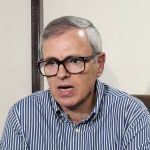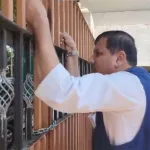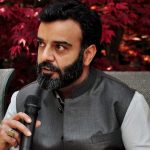Swami Vivekananda said, “We want that education by which character is formed, strength of mind is increased, the intellect is expanded and by which one can stand on one’s own feet”. In 2009, Secretary of Education USA said “to keep America competitive and to make the dream of equal educational opportunity a reality, we need to recruit, reward, train, and honor a new generation of talented teachers. Today teachers are asked to achieve significant academic growth for all students at the same time they instruct students with ever-more diverse needs. Teaching has never been more difficult, it has never been more important and the desperate need for more student success has never been so urgent. Are we adequately preparing future teachers to win this critical battle?
Dr Jitendra Singh, Hon’ble Union Minister discussed with Head of the US delegation, Dr. Sethuraman Panchanathan, Director, National Science Foundation to carry deeper cooperation in areas like Artificial Intelligence (AI), Cyber Security, Quantum, Semiconductors, Clean Energy, Wireless, Biotechnology, Geosciences, Astrophysics and Nanotechnologies. The proposal of University Grants Commission as drafted by its chief allows a foreign university among the top 500 global rankings to establish branches across India with a caution that the fee should be reasonable and transparent to public. We need to be ready for such opportunities to teach job oriented subjects and produce competitive manpower. Nearly 13 lakh students were studying abroad in 2022 according to the Ministry of External Affairs data and as per the RBI, Rs 5 billion was lost in foreign exchange due to students going overseas in FY 2021-2022. For UG medical education, it needs a good mathematician to calculate the loss. We need to establish more medical universities to stop the multipronged loss.
We all know that the present system is not the most effective way to teach 21st century skills. These skills can actually be listed as a group of words that begin with the letter “C” (critical thinking, creative thinking, communicating, and collaborating) and accordingly there are the four skills that students will need to be successful. As the world evolves toward greater interconnectedness, it is our students to whom we entrust the responsibility of building a better global society for greater good to society. An individual’s ability to think outside the box, find future solutions to future problems, collaborate and reach a consensus across cultural and national borders is urgently required.
It is evident that there is an urgent need to establish a science city, a venue which should be a collection of many institutions like foreign university campuses, science and technology parks, medical university, research laboratories, science schools and where we have autonomy to teach new and emerging areas. These science cities can act as magnets for young and bright students. Attracting young students to scientific research has also become a topic of growing importance. Science has been used by developed societies to provide solution to educational, health, economic and other problems. We are far from actualizing the potential of science for transformation of life. The issue of making science and research attractive to young people has sparked many a debate about the future of research and related technologies.
High-school students are very susceptible to new influences and the age, between 14 and 20 years, is the age of self-discovery, when the adolescent explores his or her abilities and limits and seeks a place in society. By allowing creative thinking and gauging understanding of content standards through a portfolio based system, students can display their concept retention while producing tangible and valuable outcomes. Similarly, science explores the world beyond the current limitations of knowledge, challenges ‘wisdom’, and sets out to find answers. The freedom of thought enjoyed by scientists, the ability to satisfy their curiosity, and the possibility of gaining new insights into the natural world are probably the most attractive features of scientific research, Thus, science and research offer a unique and unparalleled opportunity to quench their thirst for answers and explore their intellectual strengths and abilities.
Bottom-line
City with branch campuses of some of the world’s leading universities, a medical university, science parks, science schools, cultural institutions and innovation factory (like IISc Bangalore) is urgently needed in Jammu & Kashmir. Being proponent, I will continue to paint a compelling picture of the potential for new nanomaterials to solve major problems: nanostructured membranes/sensors can provide clean water and resolve environmental issues; quantum dots can convert light into electricity and nanotubes transistors can make computing cheaper, faster, and available to more people. So will be agriculture and medicine revolutionized. The 8th edition of biennial International Conference on “Nanotechnology for Better Living” NBL-23, is being organized by NIT Srinagar (J&K) in association with the prestigious institutions/organizations including with IIT BHU from 25-29 May 2023 also facilitates such platforms for discussions, deliberations and resolutions.
(The Author is Professor and Head, Post Graduate Department of Physics NIT Srinagar teaching Nanotechnology can be reached through mail at [email protected])





